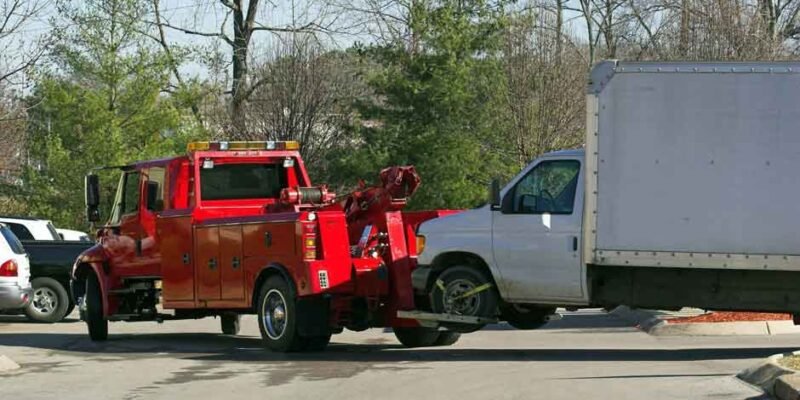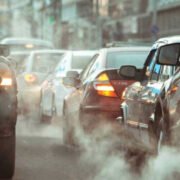When a truck accident occurs, it can have devastating consequences for those involved. In addition to physical injuries and emotional trauma, there are also financial consequences that need to be addressed. This is where liability comes into play.
Liability refers to legal responsibility for an action or event. In the case of truck accidents, determining liability is crucial to seeking compensation for damages and injuries. However, it can be a complex process as there are often multiple parties involved in these types of accidents.
In this article, we will break down the concept of liability in truck accident claims and explore who may be responsible. Read on.
Liability Allocation in Truck Accidents
Truck accidents can involve many different parties, such as:
- the truck driver
- trucking company
- cargo loaders
- maintenance companies
- etc
To determine liability, each party’s role and actions leading up to the accident must be considered. Let’s take a closer look at some of these parties and their potential liability.
Truck Driver
The truck driver is often the first party that comes to mind when thinking about who may be responsible for a trucking incident. In many cases, this is true as the driver is in control of the vehicle and its actions on the road. Factors such as driver fatigue, distracted driving, or speeding can all contribute to a truck accident and place liability on the driver.
However, it’s important to note that sometimes the truck driver may not be solely responsible for an accident. They could have been following company protocols or instructions from their employer which contributed to the incident. In these cases, the trucking company may also share liability.
Trucking Company
Trucking companies have a responsibility to ensure their vehicles are properly maintained and that their drivers follow all safety regulations. Failure to do so can result in accidents and place liability on the company. For example, if a truck is not regularly inspected or if its driver was not properly trained, the company may be held liable for any resulting damages.
In addition, trucking companies are also responsible for hiring qualified and safe drivers. If a company hires an inexperienced driver or fails to properly screen their employees, they can be held liable for any accidents caused by their drivers.
Cargo Loaders
Improperly loaded cargo can cause a truck to become unbalanced, making it more difficult to control on the road. If a truck accident is caused by improperly loaded cargo, the cargo loaders or shipping company may be held liable for any resulting damages. These parties need to follow proper loading procedures and ensure that the weight and distribution of cargo are within legal limits.
Maintenance Companies
Regular maintenance and inspections are crucial for keeping trucks in safe working condition. If an accident is caused by a mechanical failure due to lack of maintenance, the maintenance company may be held liable for any damages. This is why it’s important for trucking companies to properly maintain their vehicles and keep up with scheduled inspections.
Truck Accident Laws
Trucking accidents fall under state and federal laws that are specifically designed to regulate the trucking industry. These laws help establish standards for safety and determine liability in the event of an accident. Let’s take a look at some of the laws that may come into play when determining liability in a truck accident claim.
Federal Motor Carrier Safety Regulations (FMCSRs)
The FMCSRs are federal regulations that govern commercial motor vehicles, including trucks. These regulations cover various aspects such as driver qualifications, hours of service, and vehicle maintenance. Failure to comply with these regulations can result in liability for a trucking company or driver.
Negligence Laws
Negligence is the failure to exercise reasonable care, which results in harm or damage to others. In the case of a truck accident, negligence could refer to factors such as speeding, distracted driving, or violating traffic laws. If it can be proven that a party’s negligence caused the accident, they may be held liable for any resulting damages.
Fault in Truck Accidents
In some cases, it may not be immediately clear who is at fault in a truck accident. This is where an investigation comes into play. Evidence such as eyewitness testimonies, police reports, and vehicle data can all help determine liability. It’s important to note that each state has its laws regarding fault and how it is determined in a truck accident case.
Trucking Accident Lawsuit
When seeking compensation for damages and injuries after a truck accident, victims may file a lawsuit against the responsible party or parties. This can be a complex legal process, which is why it’s important to seek the assistance of an experienced truck accident attorney. A skilled attorney can help determine liability and build a strong case for the victim to receive rightful compensation.
Comparative and Contributory Fault
In some states, comparative or contributory fault laws may apply in truck accident cases. These laws dictate how damages can be awarded based on each party’s level of fault. For example, in a state with comparative fault laws, if a victim is found to be 10% at fault for the accident, they can still recover 90% of the damages.
Conversely, in states with contributory fault laws, a victim who is at all at fault for the accident may be barred from recovering any damages. If you are living in Arizona, make sure to read liability and laws after Phoenix truck accidents. It is crucial to understand the specific laws of your state when pursuing a truck accident claim.
Manufacturer Liability
At times, a truck accident may occur due to a manufacturing defect in the truck or its parts. In such cases, the manufacturer of the faulty part or the truck itself can be held liable for the resulting damages. For example, if a brake failure due to a manufacturing defect leads to an accident, the brake manufacturer could be held responsible.
Know the Truck Accident Claim Process Today
In summary, determining liability in a truck accident claim is crucial for seeking compensation and justice for those involved. It’s important to thoroughly investigate the circumstances of the accident. This is with multiple parties potentially sharing responsibility.
Understanding truck accident laws and having a knowledgeable attorney by your side can help navigate this complex legal process. It also ensures that the responsible party is held accountable. So, it’s important to be aware of your rights and seek proper legal guidance in the event of a truck accident.
If you want to read more articles, visit our blog.














Comments